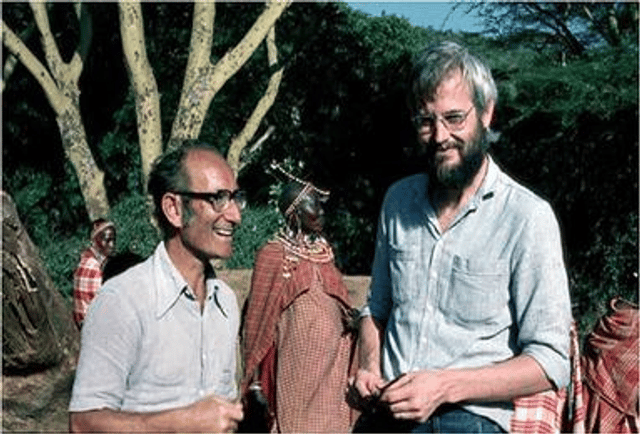Georges J. F. Köhler

Georges J. F. Köhler

Georges Jean Franz Köhler | |
|---|---|
| Born | April 17, 1946 Munich |
| Died | March 1, 1995(1995-03-01)(aged 48) |
| Nationality | German |
| Known for | monoclonal antibodies |
| Awards | Nobel Prize in Physiology or Medicine in 1984 |
| Scientific career | |
| Institutions | Max Planck Institute of Immunobiology |
| Doctoral advisor | Fritz Melchers |
Georges Jean Franz Köhler (April 17, 1946 in Munich – March 1, 1995 in Freiburg im Breisgau) was a German biologist.
Together with César Milstein and Niels Kaj Jerne, Köhler won the Nobel Prize in Physiology or Medicine in 1984, "for work on the immune system and the production of monoclonal antibodies". Milstein and Köhler's technique for producing monoclonal antibodies laid the foundation for the exploitation of antibodies for diagnostics and therapeutics and many scientific applications.
Georges Jean Franz Köhler | |
|---|---|
| Born | April 17, 1946 Munich |
| Died | March 1, 1995(1995-03-01)(aged 48) |
| Nationality | German |
| Known for | monoclonal antibodies |
| Awards | Nobel Prize in Physiology or Medicine in 1984 |
| Scientific career | |
| Institutions | Max Planck Institute of Immunobiology |
| Doctoral advisor | Fritz Melchers |
Career
In April 1974 Köhler took up a post-doctoral research fellowship at the Laboratory of Molecular Biology in Cambridge, UK where he began working with César Milstein to develop a laboratory tool that could help them investigate the mechanism that underlies the diversity of antibodies. It was during this work that they devised their hybridoma technique for the production of antibodies. Köhler continued his collaboration on the technique when he returned to Basel Institute of Immunology in April 1974.[1] Köhler remained at the Basel Institute for another nine years, during which time he continued investigating antibody diversity and in the early 1980s began working on the development of transgenic mice as a tool to understand the mechanism that underlies self-tolerance. In 1986 Köhler became director of the Max Planck Institute of Immunobiology where he worked until his death in 1995.[2] [3]
See also
University of Freiburg Faculty of Biology